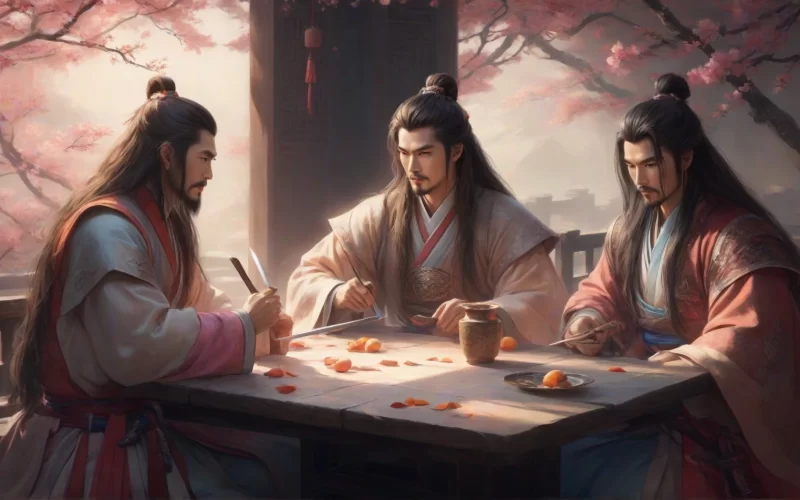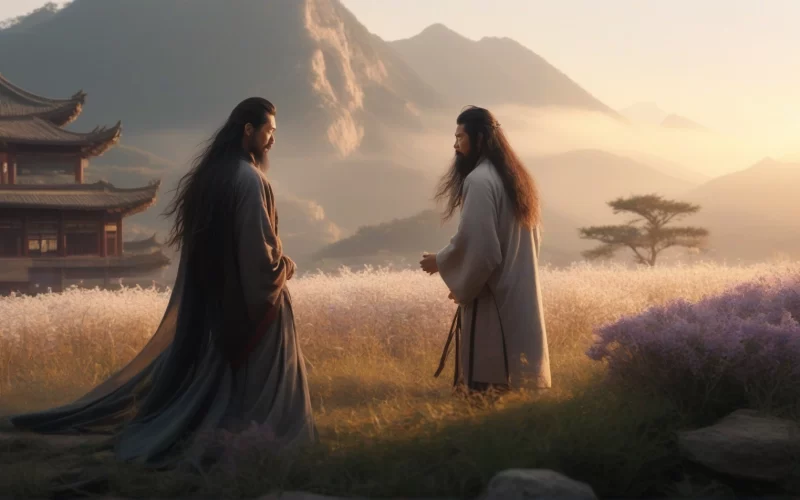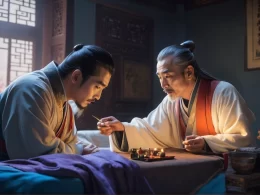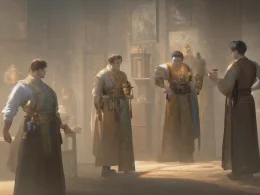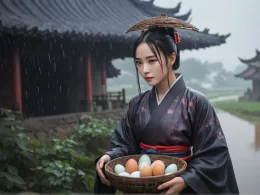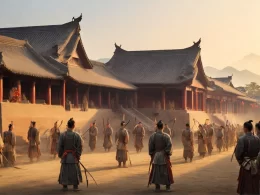Idiom Explanation:
Two peaches were given to three strong men, who died because they were fighting with each other. The metaphor is to kill someone with a sword.
二桃三士
èr táo sān shì
origin:
《晏子春秋·内篇·谏下第二》:古冶子曰:“二子死之,冶独生之,不仁;耻人以言,而夸其声,不义;恨乎所行,不死,无勇。虽然,二子同桃而节,冶专其桃而宜。”亦反其桃,挈领而死。“
story:
During the Spring and Autumn Period, Gongsun Jie, Tian Kaijiang and Guyezi served Duke Jing of Qi and were all able to fight tigers with their bare hands, making them famous for their bravery.
One day, Yan Ying (or Yan Zi) passed by them and took small steps to show his respect, but the three men did not get up and were very rude to Yan Ying. Yan Ying was angry and went to see Duke Jing, saying, "I have heard that warriors kept by wise kings can stop riots internally and deter enemies externally, and their merits are praised from above and their courage is admired from below, so that they have honorable positions and generous salaries. But the warriors whom the kings now keep have no respect for their superiors and no respect for their subordinates, and they are unable to prohibit riots internally and to deter their enemies externally. It is better to get rid of these scourges of the country and the people quickly."
Duke Jing said, "These three men are very strong, so I am afraid I cannot fight them hard, and I am afraid I will not be able to assassinate them." Yan Ying said, "Although these men are strong and aggressive and do not fear strong enemies, they do not care about the manners of elders and children." So he asked Duke Jing to send two peaches to them and said, "The three of you should share these two peaches according to your merits."
Gongsun said with a long sigh, "Yan Ying is really a wise man. He told Duke Jing to tell us to share the peaches according to our merits. If we don't accept the peaches, we are not brave; but if we accept the peaches, there are too many peaches and too few peaches, so we have to share the peaches according to our merits. I defeated the wild boar for the first time, and the tigress for the second time. With such merits as mine, I can eat a peach without sharing one with others." So, he took a peach and stood up.
Tian Kaijiang said, "With my weapon in hand, I repelled the enemy twice in succession. With such a merit as mine, I can also eat a peach by myself alone, without having to share one with others." So he also picked up a peach and stood up. Gu Ye Zi said, "I once followed the king of the country across the Yellow River, and a large turtle bit the horse on the left side of the cart and dragged it to the middle of the river. At that time, I could not swim on the surface of the water, but only dived into the water, held against the counter-current, dived a hundred paces, and followed the current for nine miles before I caught the large turtle and killed it. Holding the horse's tail in my left hand and carrying the big turtle's head in my right hand, I leaped out of the water like a crane. The people on the ferry were extremely surprised and said, 'The river god has come out'. On closer inspection, it turned out to be the head of a turtle. Even a meritorious person like me can eat a peach by himself alone, but not share one with others! Why don't you two bring out the peach quickly!" When he said that, he drew his sword and stood up.
Gongsun Jie and Tian Kaijiang said, "We are not brave enough to catch up with you, nor are we as meritorious as you, and we are not humble enough to take the peach, which is greedy; yet still alive and not dead, what bravery is there to speak of?" So they both handed over the peaches and killed themselves.
Seeing this situation, Gu Ye Zi said, "They both died, but I alone live, which is unkind; to use words to shame others and to boast of oneself, which is unrighteous; to repent of one's words and deeds, yet not dare to die, which is without courage. Be that as it may, if they both eat one peach together, it is proper, and if I eat the other peach alone, it is proper." Feeling ashamed, he put down the peach and also killed himself. Duke Jing's messenger replied, "All three of them are dead." The Duke of Jing then sent someone to dress them, put them in coffins, and buried them according to the funeral of a warrior.
Similar Idioms:
- 借刀杀人






